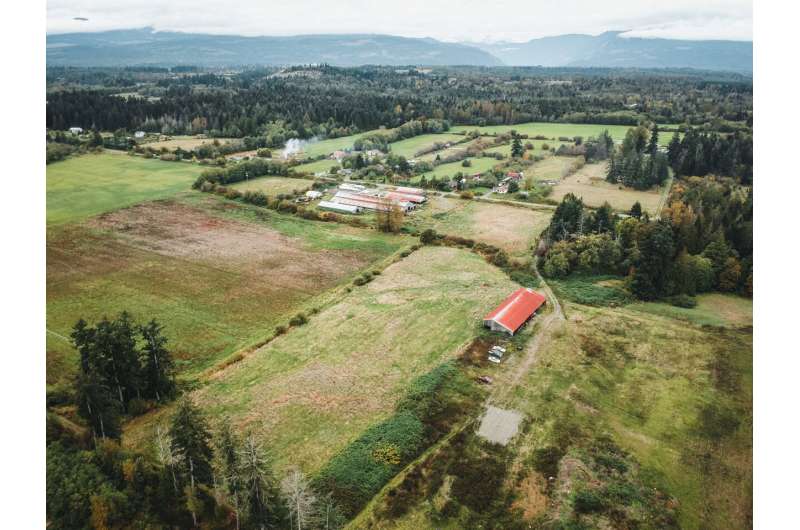This article has been reviewed according to Science X's editorial process and policies. Editors have highlighted the following attributes while ensuring the content's credibility:
fact-checked
trusted source
proofread
Decoupled direct payments make agriculture more productive, finds study

Better alignment with the market is one of the goals pursued by the EU's Common Agricultural Policy (CAP) in recent decades. One of the measures used to achieve this was to decouple direct payments from production. Agricultural economists at the Technical University of Munich (TUM) have now found that this form of direct payments makes farms more productive. Despite higher productivity, the environmental impact remains at a comparable level.
They found farmers adapt successfully to market developments with decoupling, and despite higher productivity, there is no increase in the environmental impact. Also, decoupling might be a way to meet the growing demand for food and raw materials for the bioeconomy.
With a reform of the CAP, the EU restricted the member states' ability to link direct payments to production, for example to the cultivation of certain crops, from 2005. Since then, funding has been based primarily on the acreage. Farmers should be more aligned with the market as a result. However, recently, EU countries have once again increasingly opted for coupled direct payments as a reform in 2013 gave them more options to do so.
More productive agriculture, better alignment with the market and more diverse farms—without a larger environmental footprint
TUM agricultural economists Dr. Philipp Mennig and Prof. Johannes Sauer have now studied how premiums affect the productivity of farms. Their study is published in Applied Economics. The results show that farms become more productive as a result of decoupling. This is primarily due to economies of scale and the increased use of technical innovations. With decoupled premiums, farmers adapt successfully to what is going on in the market and seize development opportunities.
Although productivity increased, the environmental impact remained at a similar level as before decoupling. "An increase in productivity can certainly be environmentally neutral, it is not per se linked to intensified production," says agricultural economist Mennig. Another effect was that farmers diversified their farms as a result of decoupling. One possible reason for this is that they diversified their farms to mitigate the higher price risk due to market conditions. Another explanation is that farmers are increasingly generating non-agricultural income.
Subsidies: Decoupling as the key to the efficient use of resources
The analysis shows what decision-makers should consider in future agricultural policy reforms. According to this, farmers successfully identify the right strategy for their business and therefore use resources efficiently. "This is relevant because with dwindling resources the efficient use of resources and an increase in productivity in the agricultural sector at a global level are essential in order to feed the growing world population and provide sufficient raw materials for the bioeconomy," continues Mennig. Coupled direct payments, on the other hand, prevent agricultural goods from being produced with the best possible use of resources.
The results also provide information on how the Common Agricultural Policy could be further developed with regard to sustainable agriculture. When agri-environmental measures are promoted, this is currently often linked to certain production practices. However, this does not allow them to develop their full potential. In future, more flexibility and a focus on results with the measures could ensure that farmers produce ecosystem services in line with market demand. However, knowledge about how the markets for environmental goods could be structured is currently still limited.
Researchers compared the impact of agricultural policy in depth
The study is the first of its kind to take into account the diversity of farms, assess their performance holistically in terms of ecological and economic criteria and have a clearly defined alternative scenario. The researchers' study compared French and British arable farms. The two countries decoupled direct payments at different speeds: While the U.K. fully decoupled from 2005, France started one year later and retained the maximum possible share of coupled payments until 2010.
For their analysis, the researchers used panel data that contained, for example, farm-specific information on the agricultural goods produced and the use of input, as well as socio-economic indicators such as the age, education and household income of the farm managers. These covered the period from 2003 to 2008. They compared similarly structured French and British farms on this basis.
More information: Philipp Mennig et al, Revisiting the impact of decoupled subsidies on farm performance: a counterfactual analysis using microdata, Applied Economics (2023). DOI: 10.1080/00036846.2023.2266601
Provided by Technical University Munich





















